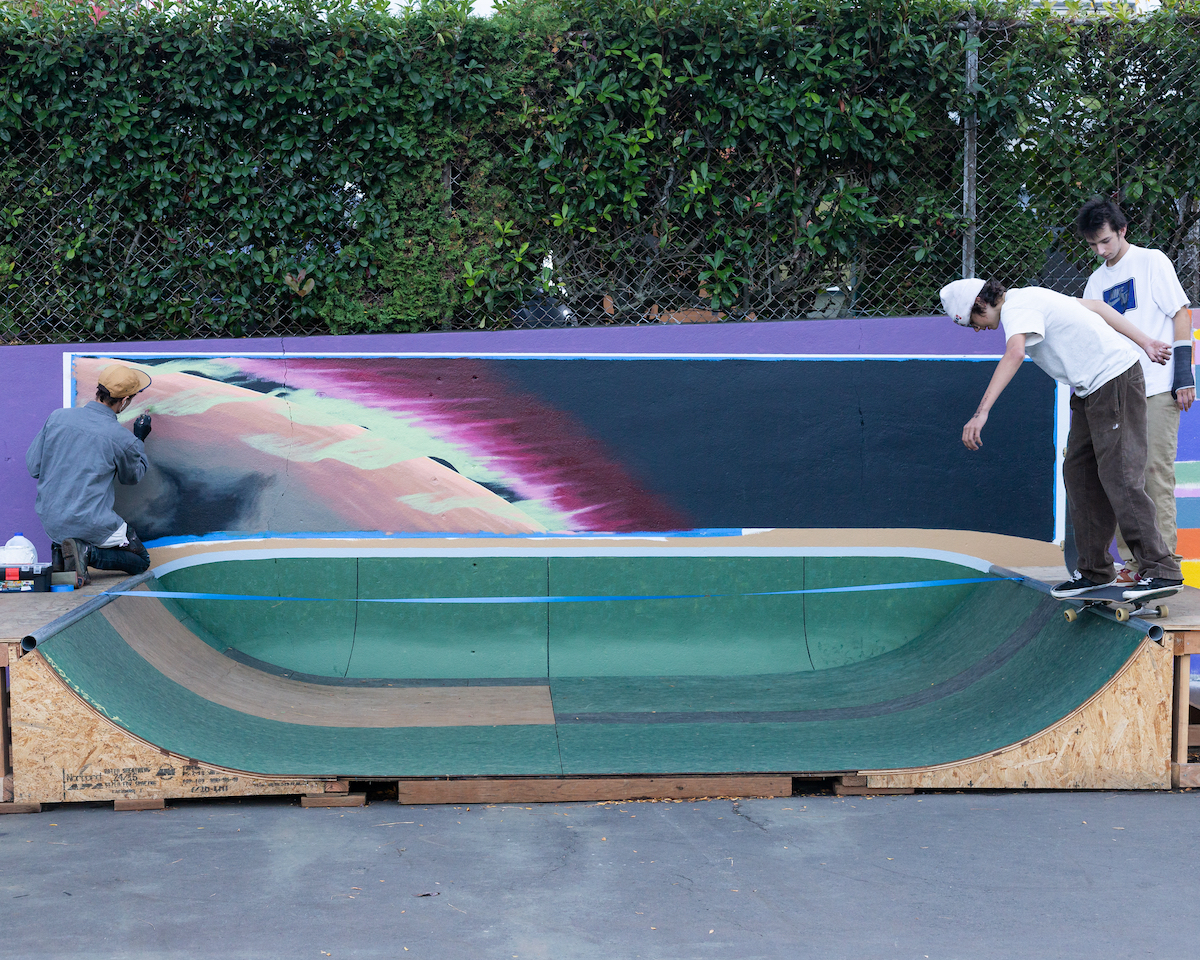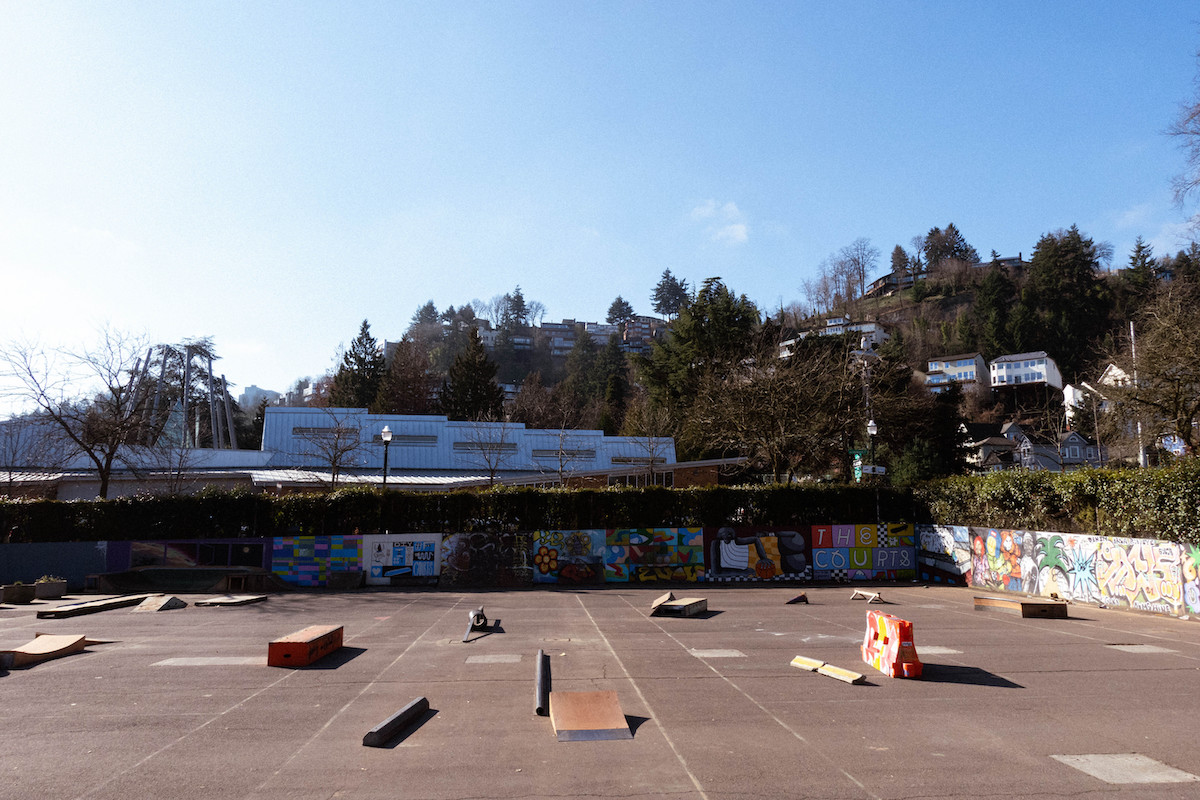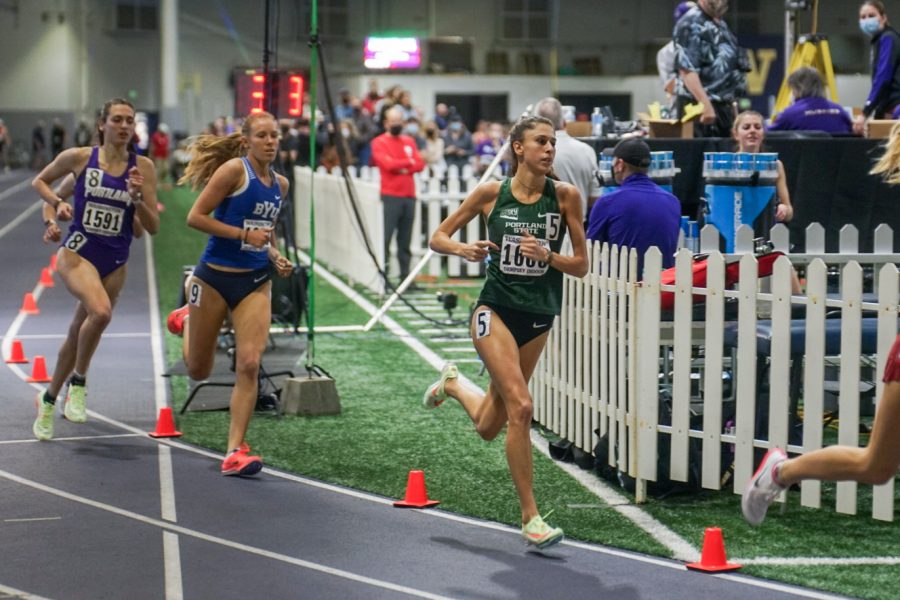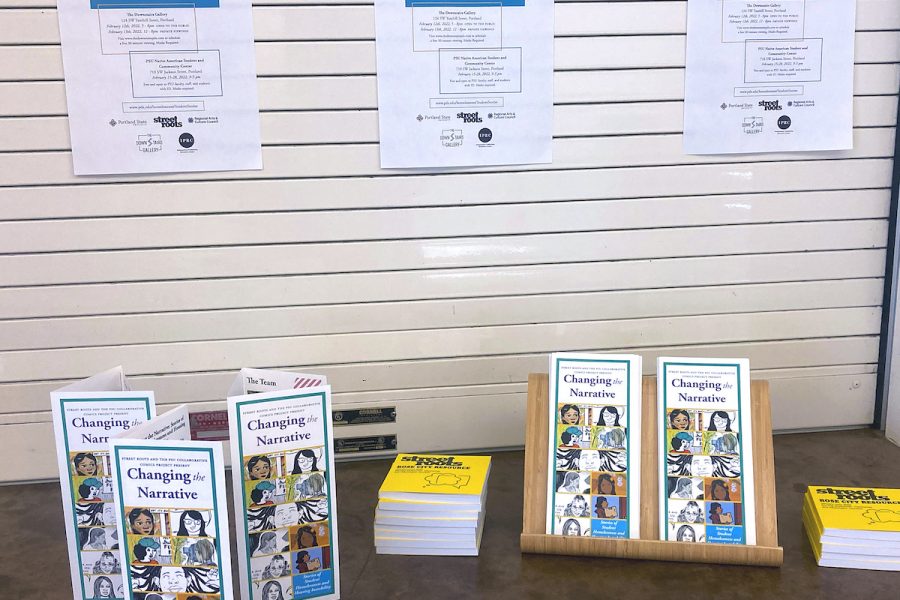On the edge of Portland State University’s Northeast Campus, a local DIY skatepark is paving a way for community creative spaces.
At the park dubbed The Courts, passersby can hear all manner of skating lingo: “That was radical bro! Really styling there! That grind was dipped!”
Tennis players used to know the park as the place to get equally radical with their maneuvers—but now, as a popular DIY skatepark, the area continues to break down boundaries within the community.
The Courts came from humble beginnings, but organically expanded into what it is today. Changes seemed to happen overnight, with a new launch ramp installed here or a new flat bar set-up there. The unpredictability and uncertainty of The Courts’ growth isn’t a downside—it’s a feature and part of what makes DIY skate parks so appealing.
Unlike concrete skateparks, everything in a DIY skate park is always moving around, and people can experiment with the flow of the park by easily moving features.
Another distinct feature of The Courts is its location. Located on school grounds, skaters and visitors have access to food vendors and convenience stores. Typically schools, let alone colleges, don’t come with skateparks accessible on campus but in PSU’s case, it does. This location has allowed The Courts to become something truly unique, and with time, it has flourished into something innovative, daring, and very creative.
On Oct. 1, 2021, artists from all over set out to paint the walls of The Courts. A mural day in memory of Kip Olkowski, a PSU student and passionate skateboarder who passed away, was a chance for artists to express themselves and their ideas. A day spent painting, grinding and raffling, the mural day was a day to remember and inspire.
The similarities between skateboarding and art go beyond just collaboration. “Always be yourself, express yourself, have faith in yourself,” as Bruce Lee once famously said.
The Courts are an accepting space, full of artwork and shredding. What more could skaters from all walks of life ask for?
Organizations like the Portland chapter of Skate Like a Girl—a nonprofit organization with an emphasis on inclusivity within skateboarding—have congregated at The Courts to host fun events like a Halloween meetup, where skaters try their luck in the costume contest.
Because skateboarding is still predominantly a male sport, Skate Like a Girl’s mission to empower skaters, especially young women and/or trans people, creates a community and a sense of belonging. Skate Like a Girl also offers lesson-based clinics for young skaters of all levels at skate spots throughout Portland.
In the future, the existence of The Courts might provide inspiration for places of learning to include skateboarding activities—and other means of artistic expression—on school grounds.





